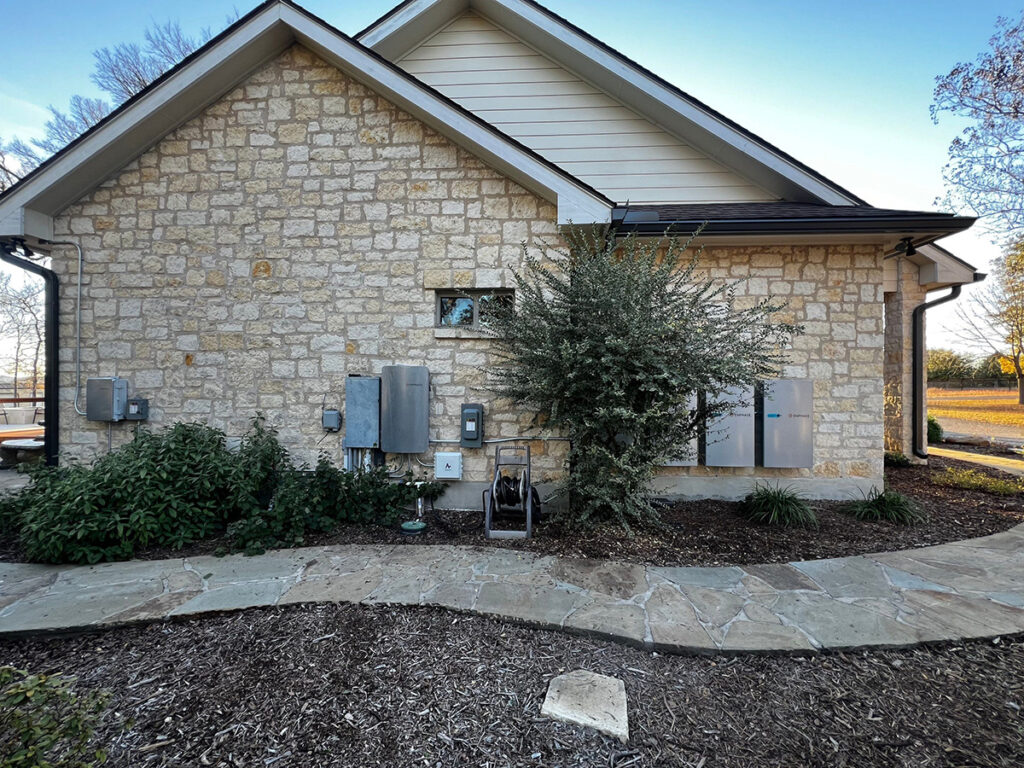
Bandera Electric Cooperative is enhancing the value of its distributed energy resources portfolio by adding affordable battery storage to the options it offers members who subscribe to its Energy Saver program.
“We launched Energy Saver in 2020, and now have about 663 Energy Saver customers and 553 Distributed Generation customers, all using Apolloware,” said John Padalino, general counsel and chief administrative officer of the Bandera, Texas-based distribution co-op. “Our battery storage program will provide subscribers with ‘whole house’ electricity for eight hours or more during extended power outages and help reduce our peak demand under normal operating conditions.”
Since November, the co-op has installed 10 battery storage systems, made available to subscribers at a very low cost, and hopes to increase overall subscriptions to 75 units soon.
“Our vision would be that every member will be eligible for this program over time,” said Padalino. “We’re a typical rural community with some high-income members, but most of our members are low to moderate income. Adding subscription storage to our Energy Saver program we’ve offered since 2020 will give members access to backup power without making large initial investments.”
The Apolloware energy assessment and monitoring application developed by BEC helps subscribers control their energy use. The app provides access to stored electricity it can tap for peak shaving and wholesale power cost control and diverts its full production and output to the subscriber’s systems whenever problems arise with the grid.
BEC officials say the new services offer a meaningful expansion of energy options and improvements initially financed with $35 million in Rural Utilities Service zero-interest loans. The co-op is leveraging tax credits authorized under the Inflation Reduction Act to finance its battery storage subscription program.
“As a nonprofit, our goal is always to earn more than we spend so we can return the savings to our members,” Padalino said. “Our Apolloware platform gives them a bill credit to make sure that they’re made whole and that we incur the cost to charge the battery.”

The subscription program is designed to be scalable so that commercial and industrial customers who maintain some of their own generation will eventually be able to subscribe to help control their power costs.
“Some of our area auto dealerships have solar arrays in the 200- to 300-kilowatt range, so the batteries are ‘stackable,'” said Padalino. “We see this as an outage resiliency program that over time will allow members to offset their consumption and help ensure service reliability when power outages occur.”
Overall value from the subscription program includes options granting the co-op access to subscribed energy storage when wholesale costs are high and the ability to fully charge the batteries during off-peak periods. The subscribers have full access to both the storage and their daytime solar energy production whenever grid-based power is unavailable.
On top of that, BEC became the first cooperative or municipal-owned utility to register the subscription battery fleet with the Public Utility Commission of Texas for participation in the aggregate distributed energy resource pilot in the Energy Reliability Council of Texas. The ERCOT program enables the co-op to create additional revenues from the subscription batteries by offering the resource into the wholesale electricity market as a virtual power plant.
“Over time, we want to learn how can we offer more benefits from battery storage to the member behind the meter to help offset their consumption,” Padalino said. “We’ll have the aggregate savings in energy to regularly offset our wholesale power costs and the individual subscribers will benefit from improved reliability tailored to their individual needs.”
Derrill Holly is a staff writer for NRECA.